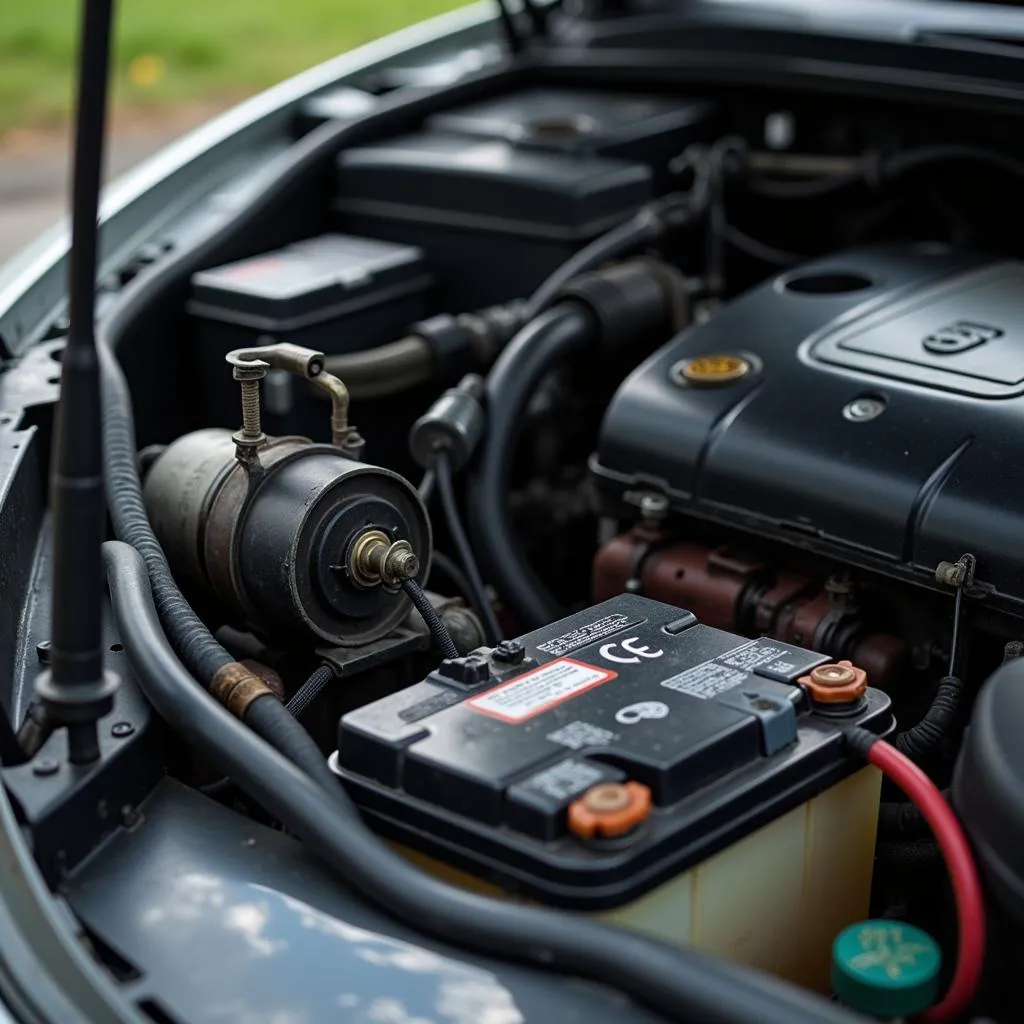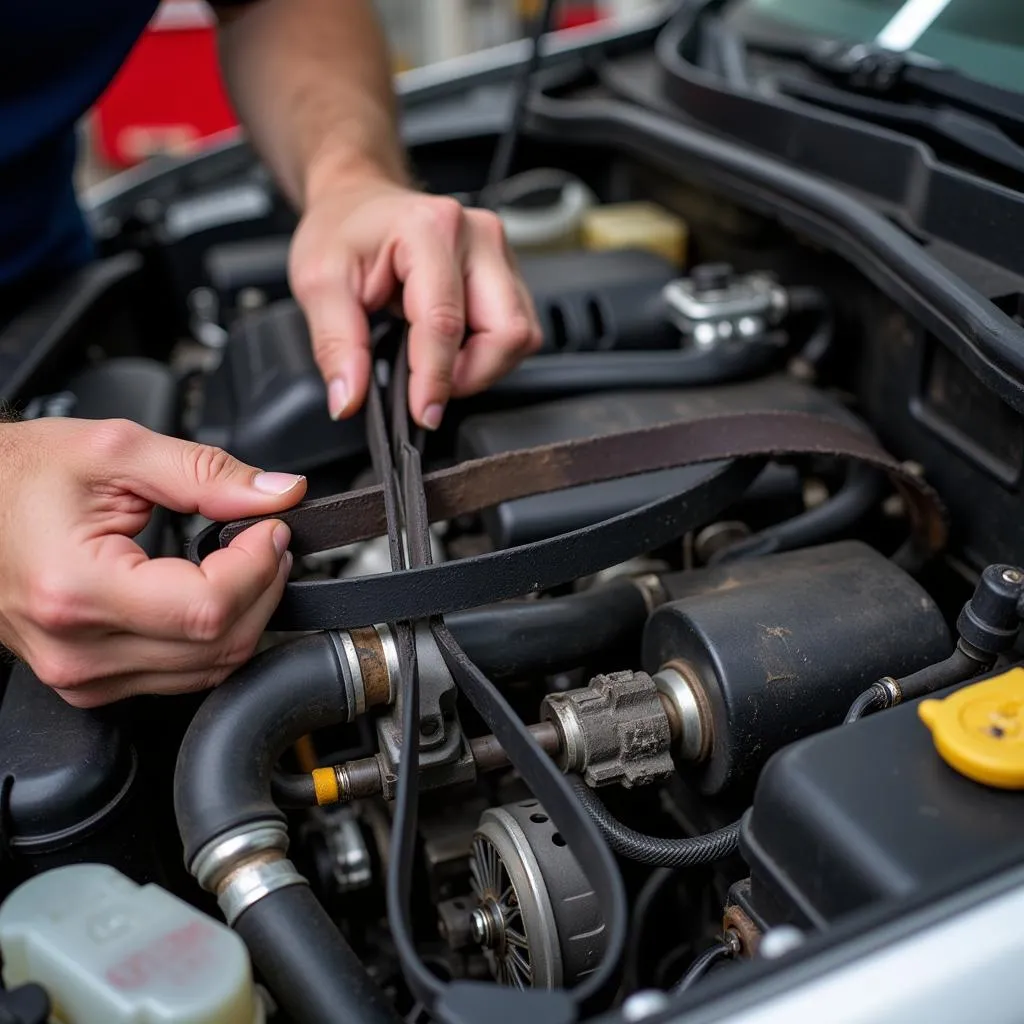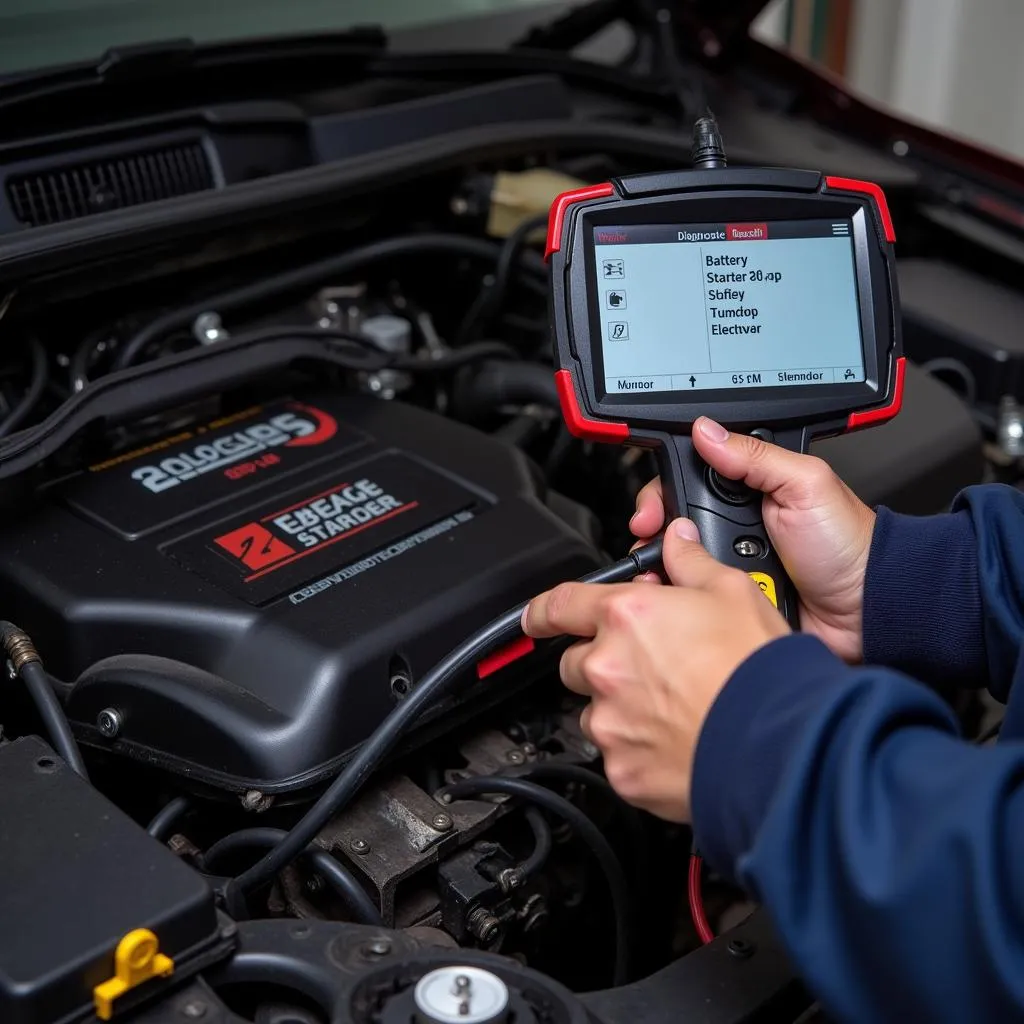Understanding the difference between a starter and an alternator sound can save you time, money, and potential headaches. Both components are crucial for your vehicle’s starting and electrical systems, but they produce distinct sounds when malfunctioning. This guide will delve deep into the nuances of Starter Vs Alternator Sound, equipping you to diagnose car troubles like a pro.
The Symphony of Starts: Decoding Starter Sounds
The starter motor is responsible for cranking your engine and bringing it to life. When you turn the key, the starter engages with the flywheel, initiating the combustion process.
Common Starter Sounds and Their Causes:
- Clicking sound: This is often the first sign of a failing starter. It usually indicates a weak battery or a problem with the starter solenoid (a small electrical component within the starter).
- Whining noise: A high-pitched whine while trying to start can point to a worn-out starter gear or bushing.
- Grinding sound: A loud, metallic grinding sound suggests that the starter gear is not meshing properly with the flywheel teeth. This could be due to a worn-out gear, a misaligned starter, or damage to the flywheel.
 Car making a clicking sound when trying to start
Car making a clicking sound when trying to start
The Alternator’s Hum: Recognizing Its Distress Signals
The alternator plays a vital role in keeping your car’s electrical system running smoothly. It generates electricity to power everything from your headlights to your radio while also recharging the battery.
Common Alternator Sounds and Their Causes:
- Whining noise: A high-pitched whine that changes with engine speed is a common sign of a failing alternator bearing.
- Growling sound: This low-pitched, rumbling noise can indicate worn-out alternator brushes or a damaged diode rectifier.
- Dimming headlights: If your headlights dim or flicker when the engine is running, it’s a clear indication that the alternator isn’t generating enough power.
 Car engine making a whining sound, indicating alternator problems
Car engine making a whining sound, indicating alternator problems
Distinguishing Between Starter and Alternator Sounds:
While some sounds can be similar, there are key differences to help you distinguish between starter and alternator problems:
- Timing: Starter sounds occur only when you try to start the engine. Alternator sounds typically happen while the engine is running.
- Frequency: Starter sounds tend to be more abrupt and less consistent than alternator sounds, which are often continuous.
- Engine Response: A failing starter will prevent the engine from starting altogether. A faulty alternator will allow the engine to start but may cause performance issues or lead to a dead battery eventually.
Troubleshooting Tips:
- Check the battery: A weak battery can cause both starter and alternator problems. Jump-start your car or have the battery tested.
- Inspect the belts: Loose or damaged belts can affect both the starter and alternator. Ensure the belts are properly tensioned and in good condition.
- Listen carefully: Pay attention to the sound your car makes when starting and running. This can provide valuable clues to the root cause of the problem.
- Use a multimeter: A multimeter can be used to test the voltage of your battery and alternator.
- Consult a professional: If you’re unsure about diagnosing car troubles, it’s always best to seek help from a qualified mechanic.
Starter vs Alternator Sound: The Final Verdict
Being able to differentiate between starter vs alternator sound is a crucial skill for any car owner. By understanding the unique sounds these components make, you can take proactive steps to maintain your vehicle and avoid costly repairs down the road.
FAQs
- Can a bad alternator damage my battery? Yes, a faulty alternator can overcharge or undercharge your battery, leading to premature failure.
- Can I drive my car with a bad alternator? You can drive a short distance with a bad alternator, but eventually, your battery will drain, and the engine will stall.
- How long does a starter typically last? Starters can last anywhere from 50,000 to 150,000 miles, depending on usage and driving conditions.
- How much does it cost to replace a starter or alternator? The cost can vary depending on the make and model of your car, but typically, a starter replacement costs between $300-$1000, while an alternator replacement costs between $200-$700.
Other helpful articles:
 Mechanic using a diagnostic tool to check for starter and alternator problems
Mechanic using a diagnostic tool to check for starter and alternator problems
Need help with your car’s starting or electrical system? Our team of expert mechanics is here to help! Contact us today via WhatsApp: +1(641)206-8880, Email: [email protected] or visit us at 276 Reock St, City of Orange, NJ 07050, United States. We offer 24/7 customer support!